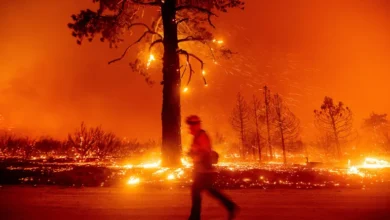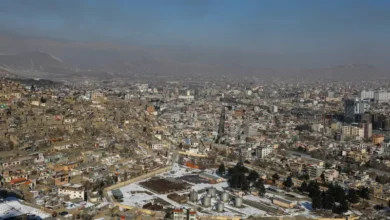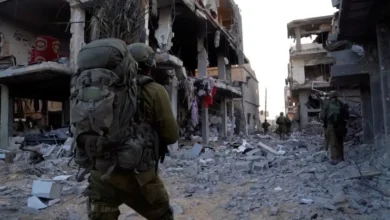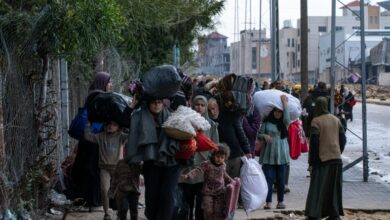As Israel inflicts starvation, I am fighting to feed my baby in Gaza
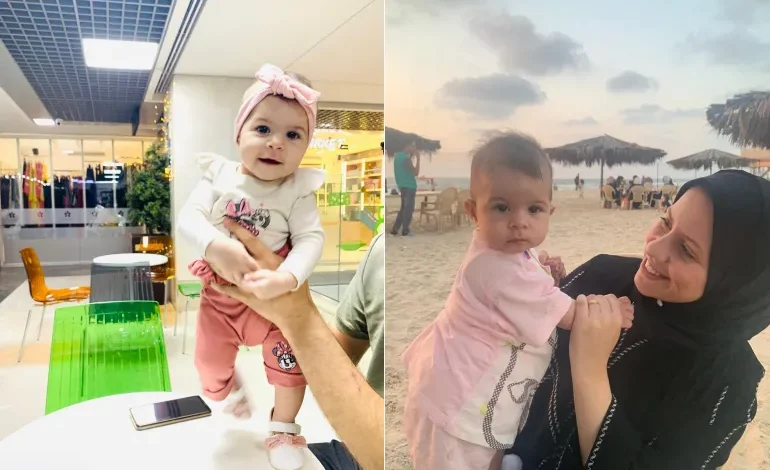
My daughter Lya was just shy of seven months old when Israel’s war on Gaza began.
She was born on March 19, 2023, two years after my husband, Mohammed, and I were married. It hadn’t been easy to conceive, and we were overjoyed to have Lya. From those early newborn days, I carefully considered everything that Lya would need, from her clothes to toys to later experimenting with recipes for the food that would nourish her. I had been adamant about breastfeeding for six months before introducing solid foods, wanting Lya to benefit from my milk as she grew and her immune system developed.
As a working mother, I would spend nearly eight hours a day away from Lya. After work, I would rush home to spend time with my daughter.
Then the war began on October 7. I had survived one war after another, yet this time I was a mother whose caution and careful planning was about to be painfully tested.
Almost immediately, Israel blocked the entry of food, water, fuel and electricity into the Gaza Strip.
Supplies began to run out, and prices increased.
Mohammed and I worried about Lya. How would we get our baby cereal and formula, nappies, and other necessities?
We collected some cans of formula and baby cereal, but I worried whether they would be enough or if we would find more. I was crushed by anxiety. Lya was growing, and her appetite was only increasing.We soon had to make a difficult decision. To stretch her food for as long as possible, I reduced Lya’s meals from three to two servings of cereal a day as well as her formula from three servings to about one – the lack of gas, electricity and clean water preventing us from preparing and storing it safely – as I continued to breastfeed.
I also knew the situation was likely only going to get worse, so I set aside some bottles of water for Lya.
By December, the Israeli army announced plans to launch a military operation in our area, the al-Daraj neighbourhood, forcing us to flee to western Gaza where my parents’ house was.
Their home was close to al-Shifa Hospital and had been abandoned since an Israeli attack on the medical facility began in November. But in our desperation, it was our only available refuge.
We left al-Daraj and made the journey across town with the small bags of essentials that we had prepared for the inevitable moment when we would flee. It was cold, and I wore a warm jacket as I held Lya tightly in my arms and locked the door to our apartment, hoping to return one day.
Our “refuge” – an area that was a prime target for Israel since the war began – was deserted. Everything around al-Shifa was devastated. There was no water, electricity or internet.
For three days, we couldn’t find any drinking water. I resorted to using my emergency reserve – the water bottles I had saved.
I carefully rationed the 2 litres (2 quarts) I had for Lya, now nearly nine months old, to prepare her baby formula and cereal and for her to drink.
Out of desperation, my husband, our relatives and I sipped unsafe saltwater drawn from a neighbour’s well.
When we managed to access drinking water, we didn’t waste it on cooking – we used the brakish water for that.
Flour was scarce and fresh produce nonexistent. We had one meal a day consisting of beans or rice, and it was never enough to feel full.
As the number of displaced people who sought refuge with us increased, our rations grew smaller as we shared what we had.
Baby cereal was scarce, and I bought what I could from the few pharmacies that had it and were rationing what they sold. But eventually, I couldn’t feed Lya more than one meal of cereal a day.
Baby formula was also hard to come by, and I couldn’t make it for Lya every time she was hungry. Drinking water was rare, and I had to save it for the most critical moments.
My body gradually began to lose its ability to produce enough milk for Lya, who would cry from hunger after I fed her. I wanted to explain to her that it was not a choice, that I was hungry, that I wanted to feed her until she was full.
Soon, I was forced to feed Lya the food that we ate – rice or soup cooked with water from the well. I felt pain and guilt every time I fed her, terrified of every bite I put into her mouth and what it might do to her body. I whispered to her: “Sweet baby, I have no choice. Sweet baby, stay well.”

